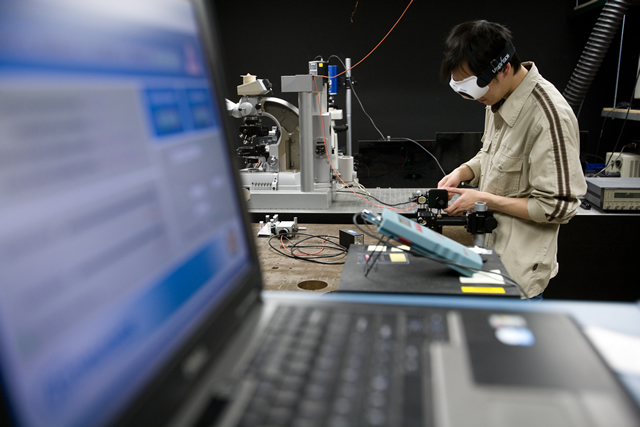
Computer Science ETDs
Publication Date
Fall 11-15-2022
Abstract
The rise of the Internet of Things (IoT) services has facilitated data sharing and information diffusion among billions of devices. However, IoT still faces data privacy and energy consumption challenges yet to be resolved. Here, the data privacy challenge implies that clients in terms of IoT devices have to share their sensitive data (such as clients’ locations) with a centralized server or data center (managed by third parties), which analyze these sensitive data to generate high-level knowledge that can provide better services to the clients. The energy consumption challenge implies that clients have to frequently send their data to a centralized server, thus quickly draining their portable batteries. In this dissertation, we apply Federated Learning (FL) to IoT in order to resolve the data privacy and energy consumption challenges. FL is a distributed machine learning technique to allow clients in terms of IoT devices to locally train the models/knowledge. Instead of sharing raw data sets, the clients in FL only share their derived local models with the FL server, which aggregates the local models from the clients to generate a global model that can better fit the data sets of the clients. FL does not require clients to share their raw data sets, and so it can potentially address data privacy issues and reduce the energy consumption of clients since massive data transmissions are not necessary for training models. Due to the heterogeneous feature of the clients in wireless FL, where different clients have different computing and communications capabilities, client selection is critical to the performance of FL in terms of model training time and model accuracy. The goal of client selection is to maximize the number of qualified clients, who can successfully upload their local models to the FL server via the base station (BS) before the predefined deadline, in each global iteration. Client selection also depends on the wireless access technology applied at the BS. In this dissertation, we first designed a novel client selection algorithm when time division duplex (TDD) based Orthogonal Frequency Division Multiple Access (OFDMA) is applied as the wireless access technology. The proposed client selection can maximize the number of qualified clients by considering not only the computational and uploading latency but also the waiting time of a client in waiting for the wireless channel to become available for local model uploading, which is normally ignored by the existing client selection algorithms, thus violating the deadline constraint. In this dissertation, we also design a deep reinforcement learning-based solution to jointly optimize the client selection in each global iteration as well as the transmission power of each selected client in each time slot within a global iteration when NonOrthogonal Multiple Access (NOMA) is applied as the wireless access technology. Extensive simulations demonstrate that the proposed deep reinforcement learning based solution can efficiently and adaptively allocate wireless resources to generate more qualified clients as compared to the baseline solutions. Most of the existing client selection methods aim to maximize the number of qualified clients to potentially accelerate the model convergence rate. However, these methods ignore the fact that most of the IoT devices are powered by on-board batteries and green energy harvested from the environment to prolong battery life. Hence, clients selected by these methods may not have sufficient energy to upload their local models in a global iteration or are unable to participate in the training process in the near future due to battery drainage. To resolve this problem, we propose a novel client selection algorithm tailored for green FL, where each client uses harvested green energy as a main power source and portable batteries as a backup. The goal of the proposed client selection is to optimize the trade-off between maximizing the number of selected clients and minimizing the overall energy pulled from the portable battery for the selected clients in each global iteration, while ensuring that all the selected clients have sufficient energy to upload their local models before the deadline. Future work comprises two parts. First, we will investigate joint dynamic sample selection and client selection to maximize the number of training samples for the selected clients in each global iteration, which can potentially reduce the model training time. Second, to protect the FL process against malicious client attacks, we will explore malicious client identification to evaluate the probability of a client being malicious, and apply client selection to prevent the system from selecting these malicious clients.
Language
English
Keywords
Federated Learning, Internet of Things, client selection, data privacy, energy consumption
Document Type
Dissertation
Degree Name
Computer Science
Level of Degree
Doctoral
Department Name
Department of Computer Science
First Committee Member (Chair)
Xiang Sun
Second Committee Member
Shuang Luan
Third Committee Member
Michael Devetsikiotis
Fourth Committee Member
Amanda Bienz
Recommended Citation
Albelaihi, Rana. "Adaptive Federated Learning for the Internet of Things." (2022). https://digitalrepository.unm.edu/cs_etds/115
